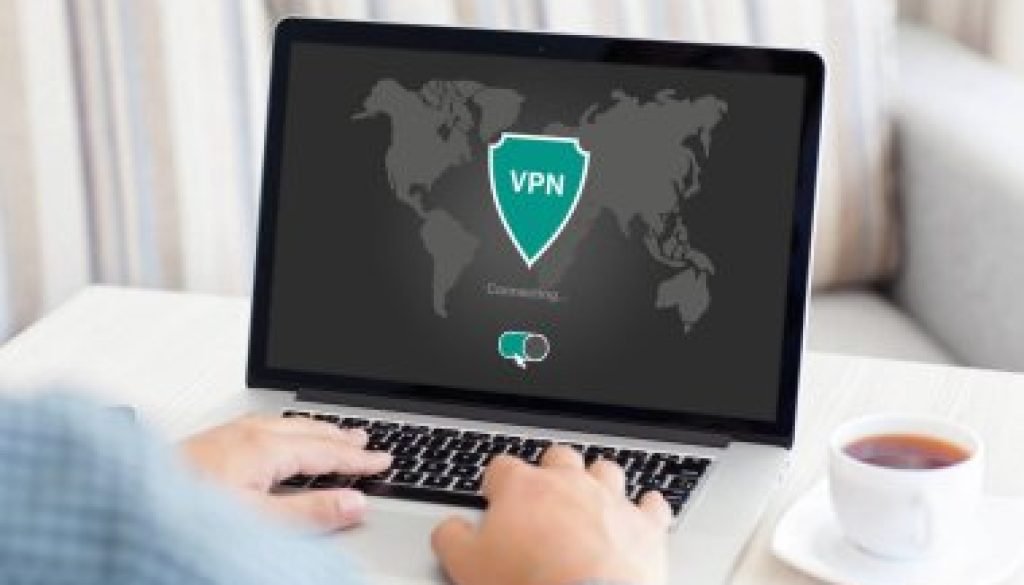What is a VPN?| History of VPN
In the ever-evolving landscape of the digital world, privacy, and security have become paramount concerns for individuals and organizations alike. One tool that has gained prominence in addressing these concerns is the Virtual Private Network, commonly known as VPN.
What is a VPN?
At its core, a VPN is a technology that establishes a secure and encrypted connection over the internet. It acts as a virtual tunnel, allowing data to be transmitted securely between the user and the destination server. This encryption ensures that sensitive information remains confidential, shielding it from potential threats in the vast expanse of the internet.
Read about What is Subnetting?|How it works?
How do VPNs work?
Understanding the inner workings of VPNs is crucial for grasping their significance. When a user connects to a VPN, their device creates a secure tunnel to the VPN server. This connection encrypts the data, making it indecipherable to any prying eyes. The VPN server, situated in a different location, then decrypts the data and forwards it to the intended destination on the internet. This entire process ensures that the user’s online activities are shielded from potential threats.
What are VPNs used for?
VPNs serve a myriad of purposes, ranging from enhancing security and privacy to accessing region-restricted content. Individuals use VPNs to safeguard their online activities, particularly when using public Wi-Fi networks. Additionally, businesses leverage VPNs to connect remote employees securely to their corporate networks, ensuring that sensitive company data remains protected.

VPN Protocols
The effectiveness of a VPN is often determined by the protocol it employs. Common VPN protocols include OpenVPN, L2TP/IPsec, PPTP, and SSTP, each with its own set of strengths and weaknesses.
- OpenVPN: Known for its open-source nature and strong security features, OpenVPN is widely used and considered a reliable choice.
- L2TP/IPsec: This protocol offers a good balance between speed and security. It is often used in combination with other protocols.
- PPTP: Although fast, PPTP is considered less secure compared to other protocols and is not recommended for transmitting sensitive data.
- SSTP: Developed by Microsoft, SSTP is known for its compatibility with Windows systems and strong encryption.
Benefits and Challenges of Using a VPN
The benefits of VPN usage are substantial. Enhanced security, privacy protection, and the ability to access geo-restricted content are among the primary advantages. VPNs create a secure environment for data transmission, preventing malicious actors from intercepting sensitive information.
However, challenges exist. A potential reduction in internet speed, known as latency, can occur when using a VPN due to the encryption and decryption processes. Additionally, choosing a reliable and trustworthy VPN service provider is crucial, as not all providers offer the same level of security and privacy.
Read about What is IP Address? How to Find?
Types of VPNs
Understanding the different types of VPNs allows users to choose the most suitable option based on their specific needs.
Remote Access VPN
This type of VPN allows individual users to connect to a private network from a remote location. It is an ideal solution for employees working from home or on the go. Remote access VPNs ensure that users can securely access company resources without compromising sensitive data.
Site-to-Site VPN
Site-to-Site VPNs establish secure connections between two or more physical locations, providing a seamless and secure network environment for entire organizations. This type of VPN is crucial for businesses with multiple offices or branches, allowing them to share data securely over the internet.
Mobile VPN
Tailored for mobile devices, this VPN type ensures that users can securely access data and applications while on the move. Mobile VPNs are essential for the modern, mobile workforce, enabling employees to stay connected and productive while maintaining a high level of security.

Hardware VPN
Hardware VPNs involve the use of dedicated hardware devices to facilitate secure connections. This approach provides an additional layer of protection, making it more challenging for unauthorized entities to compromise the VPN connection.
VPN Appliance
A VPN appliance is a pre-configured device specifically designed to manage VPN connections, simplifying the setup process for users. VPN appliances are often used in business environments where a dedicated and optimized solution is required for managing multiple VPN connections.
Dynamic Multipoint Virtual Private Network (DMVPN)
DMVPN is a dynamic and scalable VPN solution, particularly beneficial for large-scale networks with varying connectivity needs. It allows for the creation of direct, secure connections between multiple locations, making it a versatile solution for businesses with complex networking requirements.
VPN Vendors and Products
A diverse array of VPN vendors and products cater to different user requirements. When selecting a VPN provider, it’s crucial to consider factors such as server locations, logging policies, speed, and additional features. Some well-known providers include:
- ExpressVPN: Known for its strong encryption, large server network, and user-friendly interface, ExpressVPN is a popular choice among individuals and businesses.
- NordVPN: Recognized for its emphasis on privacy, NordVPN offers a robust set of features, including a no-logs policy and a vast server network.
- CyberGhost: With a focus on user accessibility, CyberGhost provides a user-friendly interface and a wide range of servers worldwide.
Read about What is DNS? How DNS works?
How to Choose a VPN
Selecting the right VPN involves evaluating a combination of factors to ensure that the chosen service aligns with the user’s specific needs.

- Security Features: Assess the encryption protocols and security features offered by the VPN provider. Look for features such as a kill switch, which ensures that internet activity is halted if the VPN connection drops.
- Speed: Consider the impact of the VPN on internet speed. While all VPNs introduce some level of latency, quality providers aim to minimize this impact.
- Server Locations: The number and locations of servers can impact the user’s ability to access region-restricted content. A diverse server network provides more options for users.
- Logging Policies: Examine the VPN provider’s logging policies. Opt for services that have a strict no-logs policy, meaning they do not store user activity data.
- User-Friendliness: A user-friendly interface can significantly enhance the overall experience. Look for VPN providers with intuitive apps and easy-to-navigate settings.
- Customer Support: Evaluate the level of customer support provided by the VPN service. Responsive customer support is crucial, especially if technical issues arise.
- Compatibility: Ensure that the VPN is compatible with the devices and operating systems you use. A versatile VPN that supports various platforms offers greater flexibility.
- Cost: Consider the cost of the VPN service and whether it aligns with your budget. Many providers offer different subscription plans, so choose one that meets your requirements.
History of VPNs
The history of VPNs dates back to the early days of the internet when the need for secure communication over untrusted networks became evident. In the 1990s, as businesses increasingly relied on the internet for communication and data transfer, the demand for secure connections grew. This era saw the development of the first VPN protocols, including PPTP (Point-to-Point Tunneling Protocol) and L2F (Layer 2 Forwarding), which laid the foundation for modern VPN technology.
As the internet continued to evolve, so did the need for more robust and secure VPN solutions. The introduction of IPsec (Internet Protocol Security) provided a standardized framework for securing internet communications. OpenVPN, an open-source VPN protocol, emerged as a versatile and highly configurable option, gaining popularity for its security features.
The 2000s witnessed an increased focus on remote access VPNs, driven by the rise of a mobile and remote workforce. Businesses sought solutions that would allow employees to connect securely to corporate networks from various locations.
In recent years, the importance of privacy and security in the digital age has propelled VPNs into the mainstream. High-profile data breaches, concerns about online surveillance, and the desire for unrestricted access to content have all contributed to the widespread adoption of VPNs by individuals and businesses alike.
As we look to the future, the evolution of VPN technology is expected to continue. Advancements in encryption methods, improved protocols, and innovations in network architecture will likely shape the next generation of VPNs, providing even more robust solutions for users seeking privacy and security in the digital realm.

Conclusion
In conclusion, the world of VPNs is vast and continually evolving. Whether safeguarding sensitive data or accessing restricted content, understanding the intricacies of VPNs empowers users to navigate the digital realm securely and confidently. As technology advances, VPNs will undoubtedly remain indispensable in preserving the privacy and security of our online interactions. The journey from the early days of PPTP to the current array of advanced protocols and features showcases the ongoing commitment to creating a safer and more private digital environment. As we move forward, the role of VPNs in shaping the future of online security is set to become even more pivotal.
Reference
- What is VPN? How It Works, Types of VPN
- What Is a Virtual Private Network (VPN)? – Security
- What is a VPN? Definition from SearchNetworking
- What Is a VPN & How Does It Work?
FAQs
1. What is a VPN?
- Answer: A Virtual Private Network (VPN) is a technology that creates a secure and encrypted connection over the internet, allowing users to transmit data securely between their devices and a destination server.
2. How does a VPN work?
- Answer: A VPN works by creating a secure tunnel between the user’s device and a VPN server. This tunnel encrypts the data, making it secure from potential threats while transmitting it over the internet.
3. Why should I use a VPN?
- Answer: VPNs offer several benefits, including enhanced security, privacy protection, and the ability to access region-restricted content. They are particularly useful when using public Wi-Fi networks and for remote workers connecting to corporate networks.
4. Are all VPNs the same?
- Answer: No, VPNs can vary in terms of protocols, security features, server locations, and logging policies. It’s important to choose a VPN service that aligns with your specific needs and priorities.
Some More
5. Are VPNs legal?
- Answer: VPNs are legal in most countries. However, the legality of VPN usage can vary, and some countries may have restrictions. It’s essential to be aware of the laws and regulations regarding VPN use in your location.
6. Can I use a VPN on my mobile device?
- Answer: Yes, many VPN providers offer dedicated apps for mobile devices. Mobile VPNs allow users to secure their internet connection and access data securely while on the move.
7. Do VPNs slow down internet speed?
- Answer: The use of a VPN can introduce some latency, potentially leading to a slight reduction in internet speed. However, the impact is often minimal, especially with high-quality VPN services.
8. How do I choose the right VPN for me?
- Answer: When choosing a VPN, consider factors such as security features, speed, server locations, logging policies, user-friendliness, and compatibility with your devices. It’s also advisable to read reviews and select a reputable provider.
9. Can I use a free VPN?
- Answer: While there are free VPN services available, they may come with limitations such as data caps, slower speeds, and fewer server locations. Paid VPN services generally offer more features and better performance.
10. Are VPNs only for privacy, or do they have other uses?
- Answer: While privacy is a primary use, VPNs also serve other purposes, such as accessing region-restricted content, bypassing censorship, and securely connecting remote employees to corporate networks.
MCQs
1. What does VPN stand for?
- A) Virtual Personal Network
- B) Very Private Network
- C) Virtual Private Network
- D) Visual Private Network
Answer: C) Virtual Private Network
2. Which VPN protocol is known for its open-source nature and strong security features?
- A) PPTP
- B) SSTP
- C) L2TP/IPsec
- D) OpenVPN
Answer: D) OpenVPN
3. What type of VPN is ideal for employees working remotely or on the go?
- A) Site-to-Site VPN
- B) Mobile VPN
- C) Hardware VPN
- D) VPN Appliance
Answer: B) Mobile VPN
4. In a Site-to-Site VPN, what does it establish connections between?
- A) Individual users and a private network
- B) Two or more physical locations
- C) Mobile devices and corporate networks
- D) Dedicated hardware devices
Answer: B) Two or more physical locations
5. Which VPN vendor is known for its emphasis on privacy and a vast server network?
- A) ExpressVPN
- B) NordVPN
- C) CyberGhost
- D) PIA (Private Internet Access)
Answer: B) NordVPN
6. What should users consider when choosing a VPN based on speed?
- A) The number of server locations
- B) The encryption protocol used
- C) The impact of latency
- D) The compatibility with devices
Answer: C) The impact of latency
7. What technology laid the foundation for modern VPNs in the 1990s?
- A) PPTP
- B) L2TP
- C) IPsec
- D) All of the above
Answer: D) All of the above
8. What is the purpose of a kill switch in a VPN?
- A) To increase internet speed
- B) To terminate the VPN connection if it drops
- C) To add an extra layer of encryption
- D) To bypass geo-restrictions
Answer: B) To terminate the VPN connection if it drops



